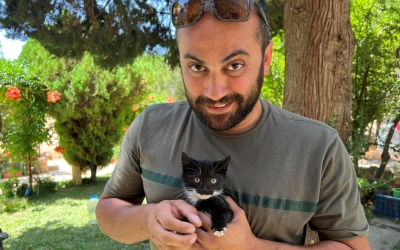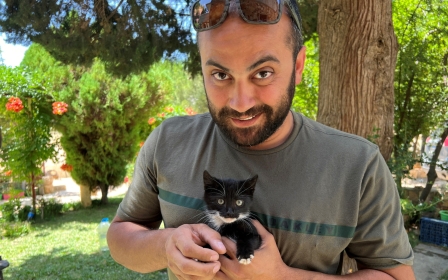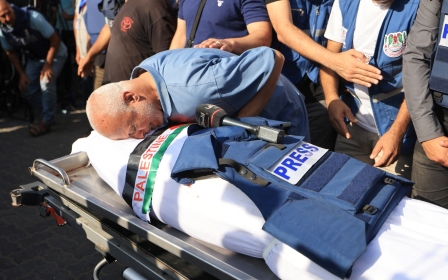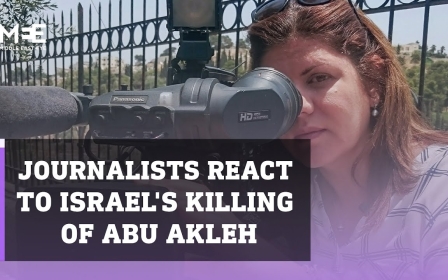UN probe finds Israel breached international law in killing Reuters journalist in Lebanon
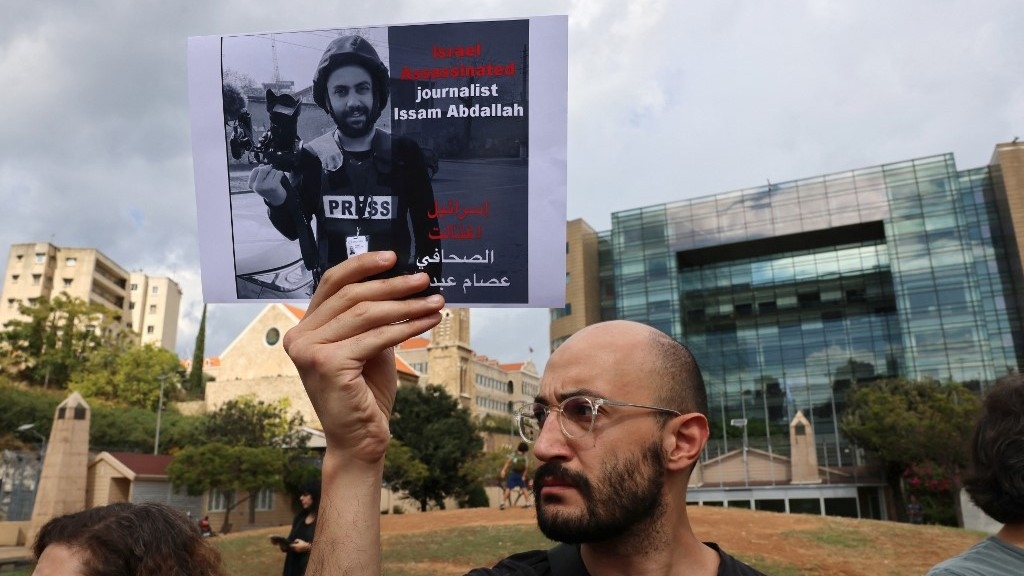
A United Nations inquiry determined that a tank from Israel caused the death of Reuters journalist Issam Abdallah in Lebanon in October by launching two 120mm shells at a group of "clearly identifiable journalists", in breach of international law.
The United Nations Interim Force in Lebanon (Unifil) concluded in a report that their observers did not witness any cross-border hostilities between Israel and Lebanon for over 40 minutes prior to the moment an Israeli Merkava tank initiated fire.
"The firing at civilians, in this instance clearly identifiable journalists, constitutes a violation of UNSCR 1701 (2006) and international law," said the seven-page Unifil report, dated 27 February and referring to Security Council resolution 1701.
"It is assessed that there was no exchange of fire across the Blue Line at the time of the incident. The reason for the strikes on the journalists is not known."
Besides killing Abdallah, the two tank rounds also wounded six other journalists at the scene.
New MEE newsletter: Jerusalem Dispatch
Sign up to get the latest insights and analysis on Israel-Palestine, alongside Turkey Unpacked and other MEE newsletters
"(The) IDF should conduct an investigation into the incident and a full review of their procedures at the time to avoid a recurrence," the report said in its recommendations. "The IDF should share their investigation's findings with Unifil."
Must be 'investigated as a war crime'
When he was struck on 13 October, Abdallah was covering clashes between the Israeli military and the Lebanese group Hezbollah near the Israel-Lebanon frontier.
Identifiable as members of the media, he and a group of reporters with him had been stationary for around 75 minutes before they were hit by two shells, which eyewitnesses at the scene said came from Israel.
Two other Reuters journalists, Thaer al-Sudani and Maher Nazeh; two Al-Jazeera TV staffers, Elie Brakhya and reporter Carmen Joukhadar; and Agence France-Press journalists, Christina Assi and Dylan Collins, were wounded in the attack.
Three reports into the killing of journalist Abdallah were published in December by Reuters, Human Rights Watch, and Amnesty International.
All three found that two Israeli missiles were fired at a group of journalists reporting from south Lebanon near the village of Alma El-Chaab.
Human Rights Watch said it found no evidence of a military target near their location.
Amnesty International said the missiles were "likely a direct attack on civilians that must be investigated as a war crime".
Using video evidence, expert audio analysis, and witness accounts, Human Rights Watch said it appeared the group was visible to the cameras of a nearby unmanned aerial vehicle that was "most likely Israeli".
The group was also “within line of sight of five Israeli surveillance towers, and most likely targeted by at least one munition fired from the main gun of a tank from an Israeli military position approximately 1.5 kilometres south-east” from the Israeli frontier, the report said.
There were two direct hits on the group of journalists that came in the space of 37 seconds, and the second strike was likely a small guided missile, Amnesty said.
Middle East Eye delivers independent and unrivalled coverage and analysis of the Middle East, North Africa and beyond. To learn more about republishing this content and the associated fees, please fill out this form. More about MEE can be found here.


